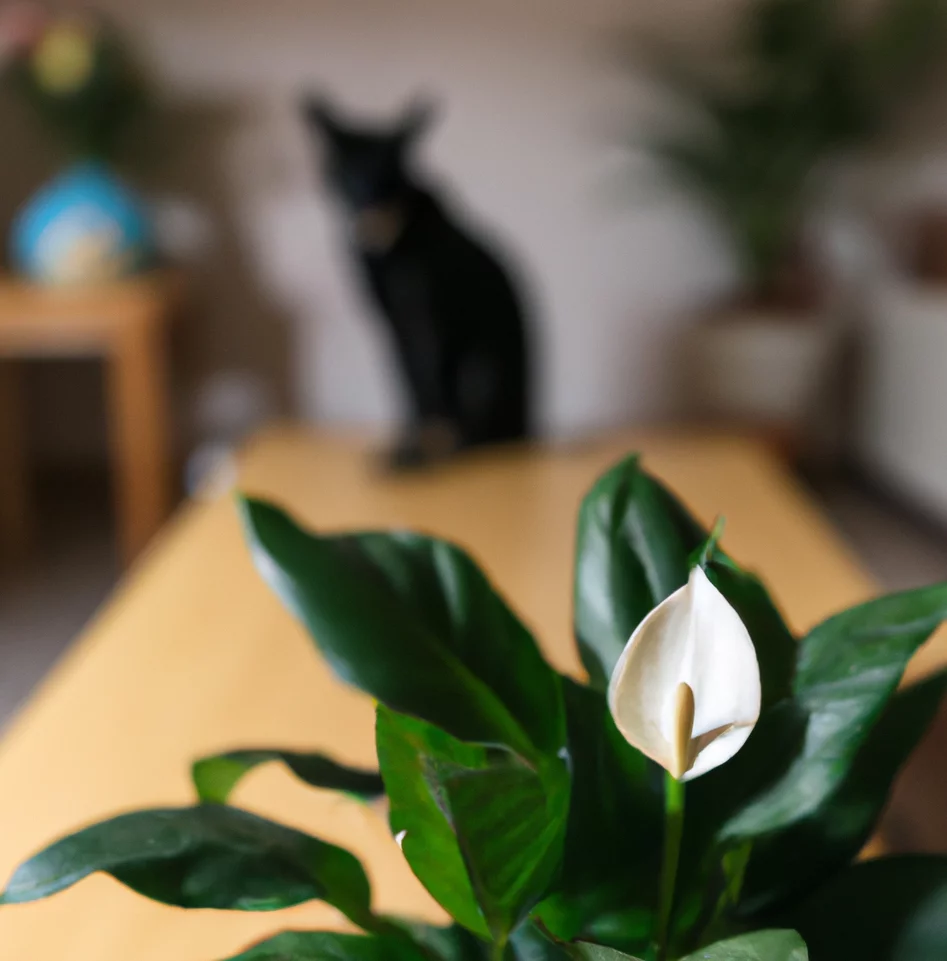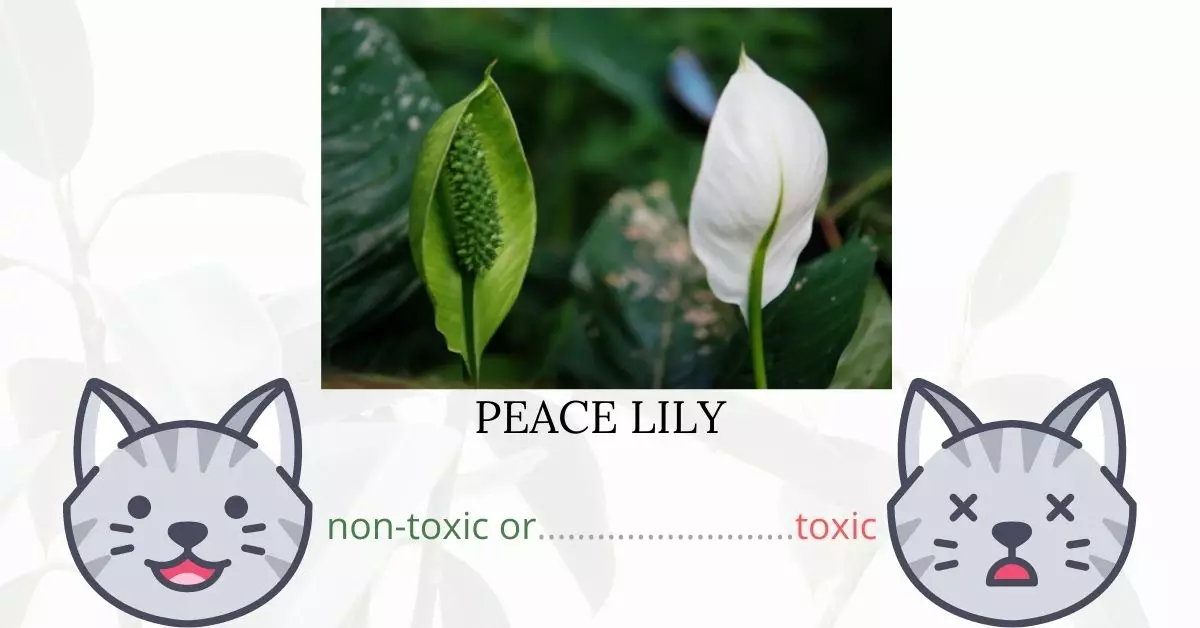Yes, peace lilies are toxic to cats. Although many households appreciate their distinctive appearance and low maintenance, cat owners must be aware of the risks associated with them.
This article is crafted in collaboration with a team of experienced DVMs (doctors of veterinary medicine). Through their expert insights, combined with rigorous research from high-authority sources like ASPCA and PetMD, we provide an accurate and comprehensive understanding of the potential dangers peace lilies pose to our feline friends.
Unlike genuine lilies from the Liliaceae family, peace lilies carry a different type of toxicity. The plant’s leaves, stems, and blooms contain insoluble calcium oxalates. When ingested, these sharp crystals can latch onto an animal’s oral and esophageal tissues, causing immediate pain and inflammation. As a defense mechanism, these crystals deter potential herbivores by inducing discomfort upon consumption. While most cats will instinctively consume only a minimal amount due to the painful irritation, severe poisonings are rare but not impossible. If substantial swelling of the throat occurs after ingestion, it can make breathing difficult for the affected cat.
Clinical Signs of Peace Lily Poisoning in Cats

When a cat comes into contact with, smells, or ingests a peace lily plant, the following clinical signs can manifest, each stemming from the irritating effects of the insoluble calcium oxalates and the body’s subsequent response:
- Drooling: Caused by immediate irritation of the oral tissues, leading to an excessive production of saliva as the body tries to flush out the offending substance.
- Pawing at the mouth: This is a reflex action due to the immediate discomfort experienced from the tiny calcium oxalate crystals piercing the sensitive mouth tissues.
- Vomiting: Ingesting parts of the peace lily can irritate the stomach lining, prompting the cat to throw up in an effort to rid its body of the toxic substance.
- Appetite loss: The pain and discomfort in the mouth can make it difficult and unpleasant for the cat to eat.
- Inflammation of the mouth: The calcium oxalate crystals can cause reddening, swelling, and soreness of the mouth and tongue.
- Diarrhea: As the body tries to expel the ingested plant material, it can lead to a disturbed gastrointestinal system.
- Dysphagia (Difficulty swallowing): The swelling and irritation in the throat can make swallowing a painful challenge for the affected cat.
- Dyspnea (Difficulty breathing): In severe cases, if the throat swells significantly, it can obstruct the airway, making it hard for the cat to breathe.
- Pupils dilated: A response to systemic stress and discomfort, which can be caused by ingesting toxins.
- Abnormalities in the heart: Certain toxic components in plants can affect the heart’s rhythm and function, leading to potential cardiac complications.
- Seizures: In extreme cases, the neurotoxic effects can lead to seizures, though this is less common.
- Coma: This is a rare occurrence but can happen in extreme cases where the poisoning severely affects the cat’s central nervous system.
If your cat displays any of these symptoms after coming into contact with a peace lily, it is crucial to seek veterinary care immediately.
First Aid and Treatment of Peace Lily Poisoning in Cats

There is no cure for peace lily poisoning. Symptoms will be managed and treated as they arise. The cat’s vital functions should be stabilized as soon as possible.
The veterinarian’s usual treatment routine may include washing the cat’s oral cavity, intravenous fluid therapy, and the prescription of medications such as antihistamines and stomach protectants.
Recovery from Peace Lily Poisoning in Cats

The majority of cats heal completely and with no long-term consequences, owing to the fact that cats do not consume large amounts of the peace lily plant. Symptoms of peace lily toxicity typically resolve within 12 to 24 hours of treatment.
Prevention of Peace Lily Poisoning in Cats
As a responsible cat parent, you should research the poisonous plants that can harm your feline babies. Keep in mind the names and appearances of these plants, as well as the effects they can have on a cat. The most efficient way to protect your cat from peace lilies and other harmful plants is to keep him indoors.
If you love plants but have cats at home, check out these lists:





